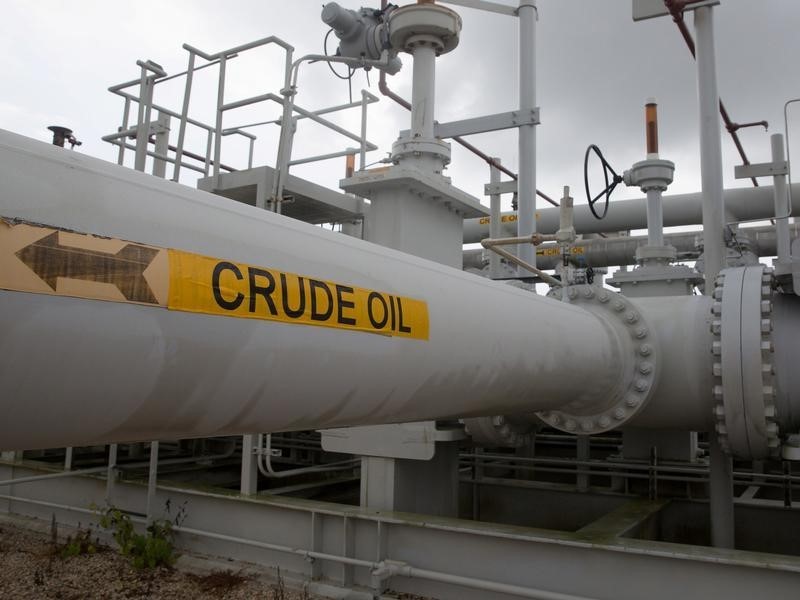Investing.com - Oil prices were trading slightly higher Thursday as declining U.S. inventories, supply cuts by major producers and U.S. sanctions on Venezuela and Iran all lent support.
Global benchmark Brent crude futures were up 0.4% at $71.91 a barrel by 08:01 AM ET (11:01 GMT).
U.S. West Texas Intermediate (WTI) crude futures were up 0.5% at $69.04.
Prices found support after the Energy Information Administration reported the first drawdown in crude stocks in four weeks on Wednesday.
Crude stockpiles fell by 1.4 million barrels last week, after a build of around 17 million barrels in three previous weeks.
The fall in oil prices came "despite a small (week on week) draw on U.S. crude inventories as observed in the latest EIA data, partly since imports slumped back toward the 6 million barrel per day mark while implied crude supply numbers remain firm," Vienna-based consultancy JBC Energy said.
The EIA also reported that gasoline inventories declined by 1.17 million barrels, while distillate stockpiles, dropped by a smaller-than-forecast 0.36 million barrels.
Prices have been supported this year by an agreement reached by the OPEC and its allies, including Russia, to limit their oil output by 1.2 million barrels per day (bpd).
Global supply has been tightened further by U.S. sanctions on OPEC members Venezuela and Iran.
Analysts have been speculating on how soaring crude prices might influence President Donald Trump in deciding on the renewals for Iranian sanction waivers that expire next month.
"With the forward curve remaining strong over the last couple of weeks we feel prices will remain firm until we see what the president decides to do with the upcoming Iran sanction exemptions," said Tariq Zahir, managing member at the oil-focused Tyche Capital Advisors fund in New York.
"If the Saudis continue to produce well under the levels they had agreed to at OPEC and if Venezuela continues losing production and Libya remains in a fluid situation with its civil war, we wouldn’t be surprised to see the president extending waivers even more this time on Iran sanctions to keep the market prices from flying," Zahir added.
-- Reuters contributed to this report
